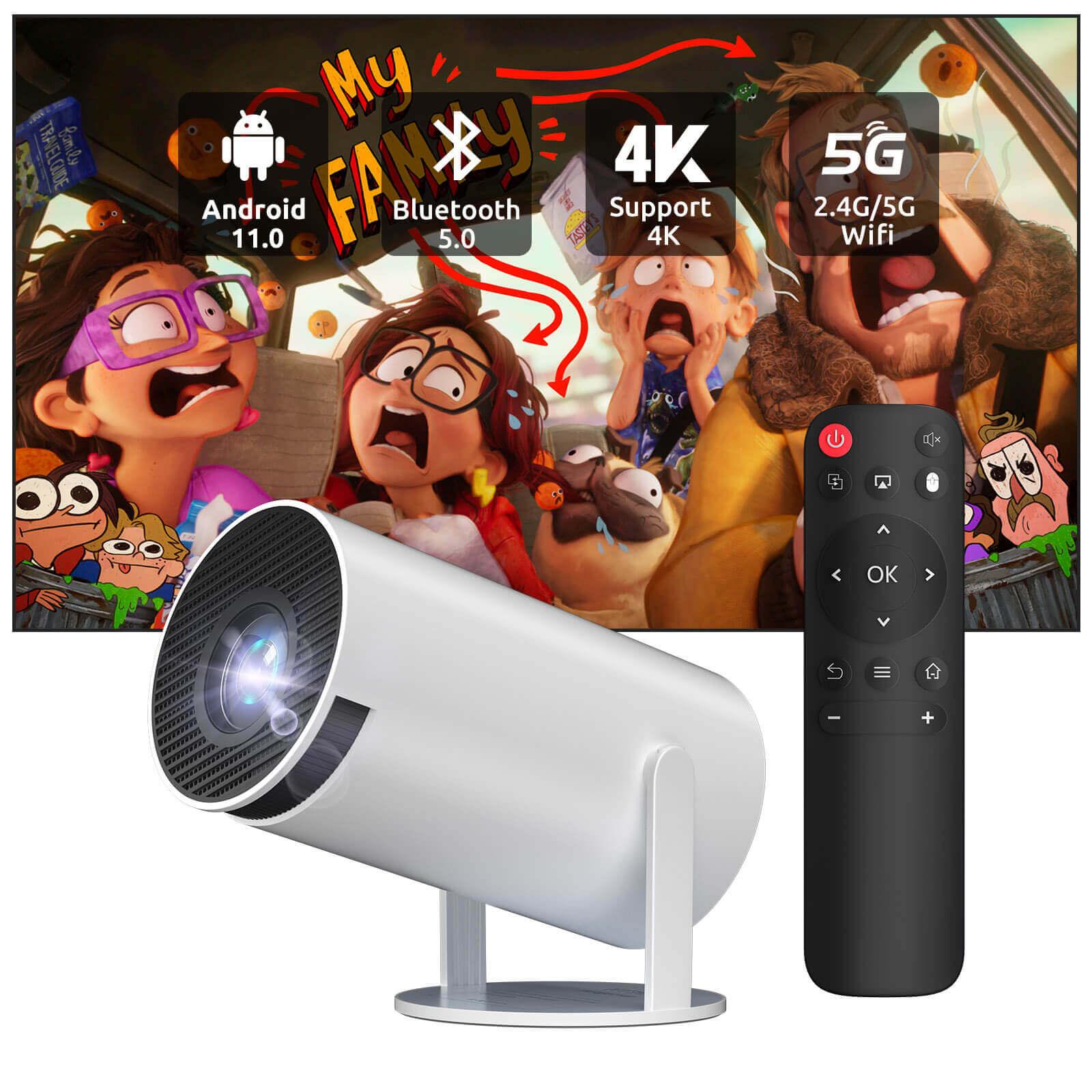Introduction:
In the modern era of entertainment and presentation, selecting the right projector for your home is paramount to achieving immersive viewing experiences and impactful presentations. This guide aims to equip you with the knowledge and understanding necessary to make an informed decision when choosing a home projector. From understanding your specific needs to evaluating technical specifications and conducting thorough research, this comprehensive guide covers every aspect of the selection process.

Understanding Your Needs:
Before diving into the world of projectors, it's crucial to identify your primary use for the device. Whether it's for watching movies, gaming, or delivering presentations, understanding your intended use will help narrow down your options. Additionally, determining the desired screen size and viewing distance for your space will ensure optimal viewing experiences.
Types of Projectors:
There are various types of projectors available in the market, including DLP (Digital Light Processing), LCD (Liquid Crystal Display), and LCoS (Liquid Crystal on Silicon) projectors. Each type has its own set of pros and cons in relation to home use, ranging from image quality to cost-effectiveness.
Resolution Matters:
Projector resolution, typically expressed in terms of HD, Full HD, or 4K, plays a significant role in determining image clarity and detail. Understanding the differences between these resolutions and considering your viewing preferences will help you choose the right projector for your needs.
Brightness and Lumens:
Brightness is a crucial factor, especially in different lighting conditions. Lumens, the measure of a projector's brightness, directly impact image quality. It's essential to understand lumens and their correlation with ambient light levels to ensure optimal viewing experiences.
Contrast Ratio:
The contrast ratio refers to the difference between the brightest and darkest parts of an image. Understanding contrast ratio and its significance in projector performance is essential for achieving vivid and lifelike visuals in your home theater environment.
Throw Ratio and Projection Distance:
Throw ratio determines the size of the projected image relative to the distance from the screen. Calculating the ideal projection distance based on throw ratio and screen size ensures that you achieve the desired image size without compromising image quality.
Aspect Ratio:
Aspect ratio refers to the proportional relationship between the width and height of the projected image. Choosing the appropriate aspect ratio based on your content and viewing preferences is crucial for maintaining proper image proportions.
Connectivity Options:
Projectors offer various connectivity options, including HDMI, VGA, USB, and Wi-Fi. Considering compatibility with your existing devices and media sources is essential for seamless connectivity and content sharing.
Integrated Features:
Exploring additional features like built-in speakers, smart TV capabilities, and 3D support enhances the versatility and functionality of your home projector. Assessing the value of integrated features based on your specific needs is key to maximizing your viewing experience.
Portability and Size:
Evaluating the portability and size of the projector is important for flexibility in placement and transportation. Compact and lightweight options are ideal for easy transport and versatile usage scenarios.
Budget Considerations:
Setting a budget range for your home projector helps narrow down your options and identify the best value options within your budget constraints. Balancing features and price is crucial for making a cost-effective investment.
Brand and Reputation:
Researching reputable projector brands known for quality and reliability is essential for ensuring a satisfactory purchase. Reading reviews and user feedback provides valuable insights into overall satisfaction with a particular brand or model.
Warranty and Support:
The importance of warranty coverage and customer support services cannot be overstated when purchasing a home projector. Checking warranty details and support availability ensures peace of mind and assistance in case of any issues.
Demo and Testing:
Visiting local electronics stores for hands-on demos and testing allows you to evaluate image quality, performance, and user interface in person. Testing the projector firsthand helps you make an informed decision based on real-world experience.
Online Research and Comparison:
Conducting online research to compare specifications, features, and prices of different projectors is essential for making an informed decision. Utilizing comparison websites and user forums provides comprehensive insights and facilitates comparison shopping.
Consideration for Room Environment:
Assessing ambient light levels and room acoustics is crucial for selecting a projector that suits the specific environment of your home theater room. Choosing a projector that adapts to the lighting and acoustics of your space ensures optimal viewing and listening experiences.
Future-Proofing Your Investment:
Considering future technology trends and compatibility is important for future-proofing your investment. Opting for a projector with upgradeable features or long-term support ensures that your device remains relevant and functional for years to come.
Final Decision and Purchase:
Summarizing key considerations and narrowing down your options based on your specific needs and preferences leads to making an informed decision. Completing the purchase process entails selecting the best-suited projector and completing the transaction.
Conclusion:
In conclusion, choosing the right projector for your home involves a thorough understanding of your needs, technical specifications, and market offerings. By considering factors such as resolution, brightness, connectivity options, and budget constraints, you can make an informed decision that enhances your viewing experience. Take your time, prioritize your specific requirements, and embark on the journey of selecting the perfect home projector to revolutionize your entertainment space.

Оставить комментарий
Все комментарии перед публикацией проверяются.
Этот веб-сайт защищается hCaptcha. Применяются Политика конфиденциальности и Условия использования hCaptcha.